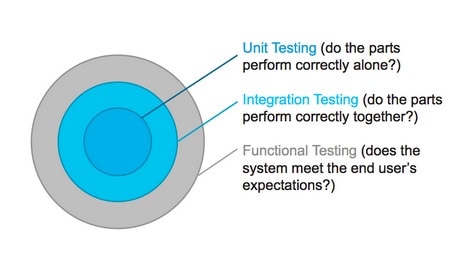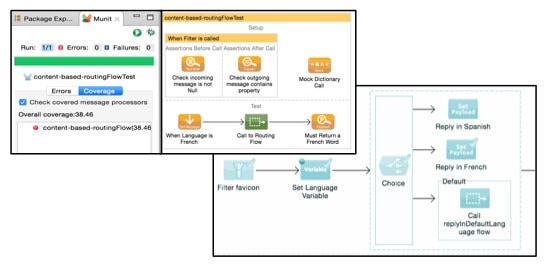A few years ago, a MuleSoft engineer had a vision. That vision: automated testing for Mule applications in Anypoint Studio. As this developer's focus was building Mule applications to connect SaaS apps, a validation framework would significantly reduce development time and increase productivity across teams. More specifically, unit tests would allow this developer to mock dependencies, uncover problems early, refactor applications quickly, and provide agile documentation for other Muleys. Months later, MUnit was born.
MUnit is the Mule testing framework. It allows developers using Anypoint Platform to code functional, integration, or unit tests for Mule applications through an intuitive API fully integrated with Anypoint Studio. Once developed, these tests can be isolated, debugged, and automated from Anypoint Studio to maximize development productivity.
MUnit tests can be written in Java or Mule, and MUnit is fully integrated with Maven and Surefire for extensibility into your continuous integration environment. With MUnit, a number of flow elements can be enabled, disabled, and mocked:
- Enable/Disable Inbound endpoints: HTTP, JMS, FTP/SFTP
- Mock Message processors (MP): any Mule component that is not a router, scope or filter (e.g. Anypoint Connectors, transformers)
- Mock Outbound endpoints: JDBC outbound endpoints, HTTP outbound endpoints
Within an MUnit test suite, developers have access to a full suite of testing tools
- Assertions for Mule messages to ensure the Mule message is what you expect
- Mocking of components inside a Mule flow (the service doesn't need to be running in production)
- Verify calls and test the # of times an MP has been called: exactly one, at least #, at most #
- Spy on an MP before/after execution: Inspect the Mule message before/after calling a MP
- Set up and tear down sections for test suites
- Custom Assertions: extend framework as you see fit (e.g. complex validation)
MUnit will be available in early July, featuring a significant upgrade to the previous MUnit Message Processing language, better integration with Anypoint Studio, and an expanded set of components to run test against. If you are eager to start playing with it, and can't wait for the official release, you can go to the GitHub page.
We'll be covering more of the basics of MUnit and working through a series of more advanced use cases in coming blogs. Let us know what you think on the forums!










